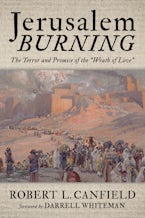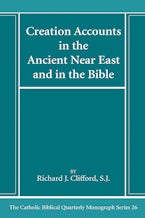Judgment and Salvation
A Rhetorical-Critical Reading of Noah’s Flood in Genesis
Foreword by August H. Konkel
Imprint: Pickwick Publications
This book contends the text of the Noachian deluge narrative categorically underscores all God did to preserve life in spite of the disaster. Despite the picture of devastation that the narrative depicts, the prominent emphasis of the text is on deliverance and redemption, i.e., salvation, not judgment. The focus of the Genesis flood is acutely bent towards God's salvific rather than punitive purposes. The arc of salvation within the flood narrative can be broken down into two main ideas. Firstly, God's intention for creation is not thwarted, and, secondly, God commits himself to his intentions of creation. God's intention for creation can be stated thus: the establishment of order via covenant showing the sanctity of human life and the upholding of all life. This involves, in particular, humanity as his image bearers, including the lex talionis (life-for-life) principle.
Dustin G. Burlet is an instructor at Millar College of the Bible in Winnipeg, Manitoba. His reviews and articles have appeared in journals including the Canadian-American Theological Review, Conspectus, the Journal of the Evangelical Theological Society, and others.
“The Scriptures often refer to the Genesis flood as a great catastrophe and a great act of judgment. But in this book Dustin Burlet offers his readers hope by looking at the other side of the story. God didn’t totally destroy the world. He preserved it and set his creation purpose going again. And the story is shaped so as to persuade its readers to accept such a hopeful worldview. So readers of Genesis and readers of Burlet’s book, be encouraged!”
—John Goldingay, Fuller Theological Seminary
“The notion of divine judgment in the Old Testament is getting a lot of bad press these days. The flood narrative, which describes God as nearly destroying all of humanity, is often viewed as incompatible with the revelation of God in Jesus Christ. But as Dustin Burlet skillfully demonstrates, the flood story was in fact written to teach the wonderful and surprising truth that the God of the Bible loves humanity and is constantly at work to redeem it.”
—Pierre Gilbert, Canadian Mennonite University
“Interpreting biblical narratives is always challenging, for often popular perceptions are misleading. Dr. Burlet’s detailed and informed analysis of the flood narrative in Genesis offers a helpful corrective, highlighting how the theme of divine salvation has not received sufficient attention. His analysis of the story using ‘rhetoric as persuasion’ casts fresh light on this important biblical narrative, revealing how it is a story about salvation as much as judgment.”
—T. Desmond Alexander, Union Theological College
“In my judgment, Dustin Burlet has succeeded admirably in demonstrating beyond question that the intent of the author(s) in this passage is not primarily on God’s annihilating judgment of humanity and the rest of his creation; rather, the primary emphasis is on everything Yahweh did to preserve the life of lost humanity and his spoiled creation, humanity’s addiction to violent living notwithstanding. Thank you, Dustin.”
—Victor P. Hamilton, Asbury University, emeritus
“A superficial reading of the Noahic flood narrative in Genesis 6–9 too often results in the reader coming away from the text with an overwhelming sense of doom and gloom. However, by examining the narrative with some of the tools of rhetorical analysis, Dustin Burlet identifies the dominance of the theme of salvation. The text represents an aspect of the Hebrew worldview, and the lessons learned from it can contribute significant elements to a Christian worldview in our own day.”
—William D. Barrick, The Master’s Seminary, emeritus
“Dustin Burlet’s study makes an interesting and significant contribution to scholarship and to the church. Burlet finds that the judgment motif is not the dominant concern of the author, as it often portrayed. It is encircled by the deliverance message with its focus on God as the all-powerful, just, and loving God whose creation purposes for humanity and creatures will not be thwarted by any human travail or moral failure.”
—Kenneth Matthews, Beeson Divinity School
“What is the biblical flood story there to do to us and for us? In this work, Dustin Burlet has advanced our ability to think about the question—both in developing a sound methodology and in carefully examining the biblical text itself. Even in those places I might judge differently, I found myself learning and enriched. I happily commend this book to you, and I am sure you will find it worth your time and thought.”
—C. John Collins, Covenant Theological Seminary











